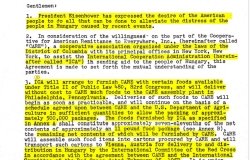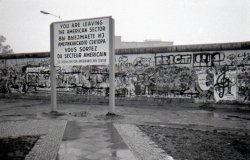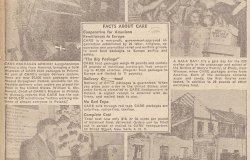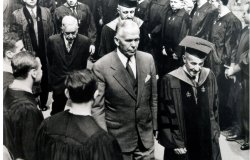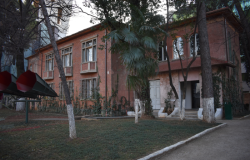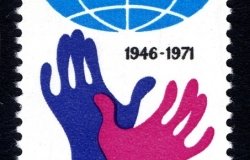Workshop on the Cold War and the Two Koreas Event Summary
On April 19, 2016, the Wilson Center’s History and Public Policy Program and Kyungnam University celebrated their ten year partnership by convening a day-long workshop on “The Cold War and the Two Koreas.” Bringing together scholars from the U.S., South Korea, and Europe, the workshop showcased groundbreaking new research on the foreign policies and domestic politics of the two Koreas since 1945.
On April 19, 2016, the Wilson Center’s History and Public Policy Program and Kyungnam University celebrated their ten year partnership by convening a day-long workshop on “The Cold War and the Two Koreas.” Bringing together scholars from the U.S., South Korea, and Europe, the workshop showcased groundbreaking new research on the foreign policies and domestic politics of the two Koreas since 1945.
During the morning session, Gregg Brazinsky (George Washington University) and Yafeng Xia (Long Island University) explored the emotional ties forged between China and North Korea as a result of the Korean War as well as the political controversies which arose between the two countries during China’s Cultural Revolution.
In a second panel titled “The United States and South Korea in Asia,” William Steuck (University of Georgia) discussed the rapid development of U.S.-Korea military relations in the years from 1947 through 1966, while Charles Kraus (Wilson Center/George Washington University) assessed Syngman Rhee’s efforts to forge an anti-communist alliance with South Vietnam and Taiwan in the 1950s.
During the third panel covering the 1960s and 1970s, Seuk-ryul Hong (Sungshin Women’s University) discussed how the two Koreas have shaped U.S.-China relations since the rapprochement in 1972. Sang-yoon Ma (Catholic University of Korea) described Park Chung Hee’s efforts to consolidate South Korea’s “self-reliance” in political, economic, and military spheres in the context of its partnership with the United States.
Two afternoon panels reviewed North Korea’s relations with the communist bloc from the 1950s through the 1970s. Liana Kang-Schmitz offered a glimpse into the lives of North Korean orphans in East Germany during the 1950s. James Person (Wilson Center) drew on Soviet-era archival materials to reassess the 1956 September Plenum of the Korean Workers’ Party and the joint Sino-Soviet party intervention. Mitchell Lerner (Ohio State University) delivered remarks on North Korea’s strategic thinking during the “Second Korean War” in the late 1960s, while Bernd Schaefer (George Washington University) discussed how Kim Il Sung carved out an advantageous position during the Sino-Soviet split.
In a final panel titled “Inter-Korean Relations at Home and Abroad,” Benjamin Young (George Washington University) presented research on North Korea’s political and social interests in Third World countries, such as the small Caribbean island of Grenada, while Jong-Dae Shin (Kyungnam University) commented on the connections between the 1988 Seoul Olympic Games and inter-Korean relations at the end of the Cold War.
In addition to twelve paper presentations, the workshop participants carried on a lively discussion about new archival research opportunities related to Korean history throughout the day. The workshop identified promising archival openings around the world and proposed new research directions in Korean history for the future.
The workshop was chaired by the Director of the History and Public Policy Program Christian Ostermann and AmbassadorJoun-yung Sun of Kyungnam University.
The workshop was generously supported with gifts from Kyungnam University and Korean Air. The Hyundai Motor Company and the Korea Foundation provided additional support. In commemoration of the partnership, papers presented in this workshop will be collected with others on the topic to be published in an edited volume. The Hyundai Motor-Korea Foundation Center for Korean History and Public Policy is part of the Wilson Center’s History and Public Policy Program.
Related Programs

Hyundai Motor-Korea Foundation Center for Korean History and Public Policy
The Center for Korean History and Public Policy was established in 2015 with the generous support of the Hyundai Motor Company and the Korea Foundation to provide a coherent, long-term platform for improving historical understanding of Korea and informing the public policy debate on the Korean peninsula in the United States and beyond. Read more

History and Public Policy Program
The History and Public Policy Program makes public the primary source record of 20th and 21st century international history from repositories around the world, facilitates scholarship based on those records, and uses these materials to provide context for classroom, public, and policy debates on global affairs. Read more

Cold War International History Project
The Cold War International History Project supports the full and prompt release of historical materials by governments on all sides of the Cold War. Through an award winning Digital Archive, the Project allows scholars, journalists, students, and the interested public to reassess the Cold War and its many contemporary legacies. It is part of the Wilson Center's History and Public Policy Program. Read more

North Korea International Documentation Project
The North Korea International Documentation Project serves as an informational clearinghouse on North Korea for the scholarly and policymaking communities, disseminating documents on the DPRK from its former communist allies that provide valuable insight into the actions and nature of the North Korean state. It is part of the Wilson Center's History and Public Policy Program. Read more
